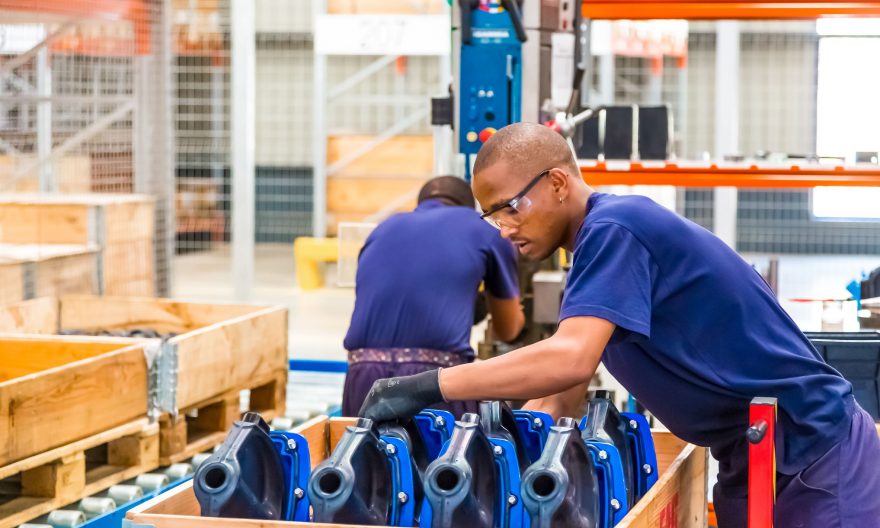
Reports issued from various international organizations confirmed that more than 400 million young people, between the age of 15 and 29, live in fragile and conflict-affected countries across the globe. This means that more than 400 million young people experience violence, face exploitation, miss out on education, and struggle to survive.
Amidst such challenges, young people have shown that they are able to play an active role, particularly, at grassroots and local levels as peacemakers, mediators, and peace builders.
Though the youth is the future of the country, politicians and extremist religious groups are trying to use the youth as a tool to ensure their own interest rather than equip them with peace values.
There is a common consensus among academicians that as the future of the country, the youth must be equipped with better knowledge and training that can serve itself and the society in general. When the youth contribute their role to resolve social challenges they will be capable leaders and can also make a difference in the lives of others.
In Ethiopia, we are witnessing ethnic and religious conflicts displacing the society from their birth places and innocents losing their priceless lives. The youth is a direct victim of such kind of crisis. As the youth is taking the epicenter in all incidents for a number of reasons, efforts to equip the new generation should be the prime task.
Sociologist, Mulatu Gebremariam, told The Ethiopian Herald that Ethiopia has the youngest, largest and fastest growing population in the world. Although public perceptions of youth are a mix of opportunities and threats, it is almost always the case that popular narratives see them more as threats by virtue of the risk factors associated with the violent actions of a handful of youth. Such perceptions presume that young people are easily lured into participating in violent actions in the context where widespread unemployment and socioeconomic vulnerabilities are on the rise. The less acknowledged flipside is of course that the nation’s young population is at the forefront of positive innovation and social change that contribute to economic growth and development.
If concerted efforts are made to ensure sustainable peace, there is an opportunity for the youth to benefit from the economy of the nation. Whenever there is a peaceful situation, there is an active economic progress. This creates a unique opportunity for the youth to exert its energy on the nation building process. Having a young generation is an advantage and an asset for every country. But, this could only happen if there is a peaceful situation. If not, it could be a liability.
Reports from both private and public institutions that were issued in various years confirmed that youth and peace are interlinked concepts in societal affairs. As the youth can play an important role in establishing peace in society, peace also has the same contribution to produce industrious generations that detest violence.
Responding to the inquiry of how instilling peace value among the youth could assist the nation, Mulatu said that development is a process of societal change and a question of who gets what, how and when. This process operates in a context of increasing scarcity-scarcity of resources, scarcity of power. In situations where there is limited capacity for managing these scarcities peacefully, the process and state of development and specifically human development can actually contribute to the occurrence and recurrence of violent conflict.
According to him, building peace values among the youth is a dynamic process that should be addressed through comprehensive fashion. In this regard, the education sector should let the coming generation be informed about nation building processes.
Experiences from other countries suggest that peace-building should be engaged as part of a holistic development process, with focused attention on empowering young people and enhancing the resilience of institutions and processes to instill the value of peace among the youth.
There is a critical link between peace-building and the development process. Whenever conflict energy is converted into peace, the outcome is obvious. Averting a violent mind promotes peace and development. This in turn enables the country to have a healthy generation, sound economy and political structure.
Peace-building as a development effort requires interventions from various stakeholders to protect and promote human security by addressing the structural causes of conflict. This involves a range of measures targeted to reduce the risk of lapsing or relapsing into conflict by empowering young people and strengthening the administrative capacities for conflict management, and to lay the foundations for sustainable, equitable and inclusive development.
“It should be noted that there are many ways to promote peace in the world but perhaps the best way is promoting it within ourselves. Peace is a gradual process that occurs when people are inspired to help others and have a heart that truly understands the meaning of sympathy. In my view, it is high time to ensure peace and security in Ethiopia, where the youth should take the epicenter in enriching peace values among the youth.”
Like that of reading, writing, drawing or emotional intelligence, peace is a learned skill that improves our knowledge, maturity, health, happiness and longevity. “Peace is probably the most important lesson we should learn during our lives and the sooner the better. In this regard the Ministry of Education should develop a strategy to provide peace education to the coming generation.”
Mulatu concluded that since peace is the backbone for all social, economic and political activities pertinent stakeholders should work coherently in strengthening its values among the youth. This could be done either by providing training or other support.
BY MENGISTEAB TESHOME
THE ETHIOPIAN HERALD FRIDAY 6 MAY 2022





